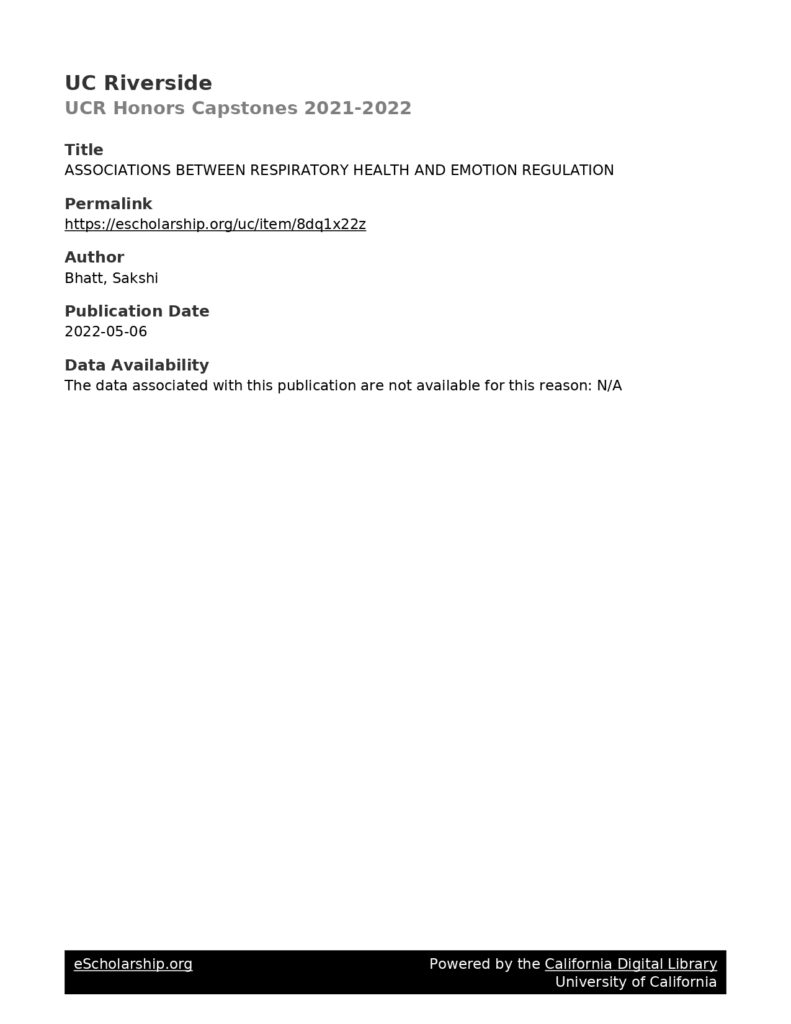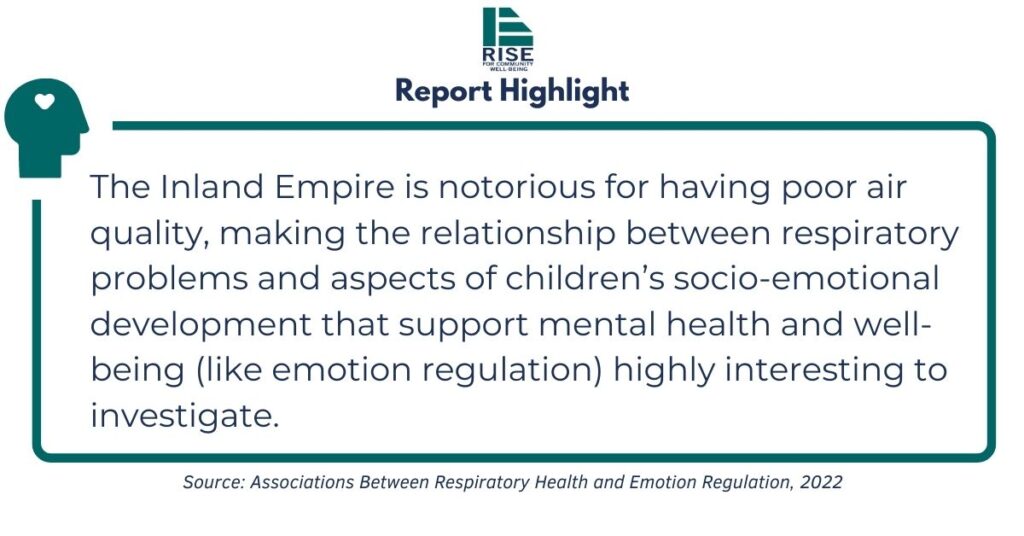Associations Between Respiratory Health and Emotion Regulation
Author: Sakshi Bhatt
Publication: University of California, Riverside – University Honors
Date: 2022
The Inland Empire is notorious for having poor air quality, making the relationship between respiratory problems and aspects of children’s socioemotional development that support mental health and well-being (like emotion regulation) highly interesting to investigate. The current study employs a biobehavioral approach to study the multi-dimensional construct of emotion regulation as it relates to respiratory diseases such as asthma, respiratory infections such as bronchitis, cold and croup, and allergies. Because respiratory health and emotion regulation are two very important aspects of child development, studying the links between them can help guide caregivers, teachers, health professionals, and policy makers on how best to support children’s healthy development. The Physiology and Emotion Regulation in Kids (PERK) study conducted by the Emotion Regulation Lab at the University of California, Riverside from 2013to 2015 included 184 child-parent dyads from a diverse population in the Inland Empire region of Southern California. Parents reported on their child’s respiratory health and emotion regulation abilities. Respiratory sinus arrhythmia (RSA) was derived from child physiological data collected throughout the laboratory visit and observed behavioral distress was assessed through an emotional task. In support of our hypotheses, results indicate that children with respiratory illnesses experienced significantly more distress (M= 2.02,SD= .57) compared to children without respiratory illness (M= 1.75,SD= .68),t(182) = -2.64,p= .01. Contrary to hypotheses, children with respiratory illnesses (M= 27.83,SD= 6.49) and children without respiratory illnesses (M= 25.98,SD= 6.96) did not significantly differ in their emotion regulation skills, t(182) = -1.50,p> .05. Similarly, children did not have significantly different RSA baselines, t(182) = -.14,p> .05. Our research aids in highlighting the possible consequences of poor respiratory health, in addition to contributing to an important avenue of work in the Inland Empire.

